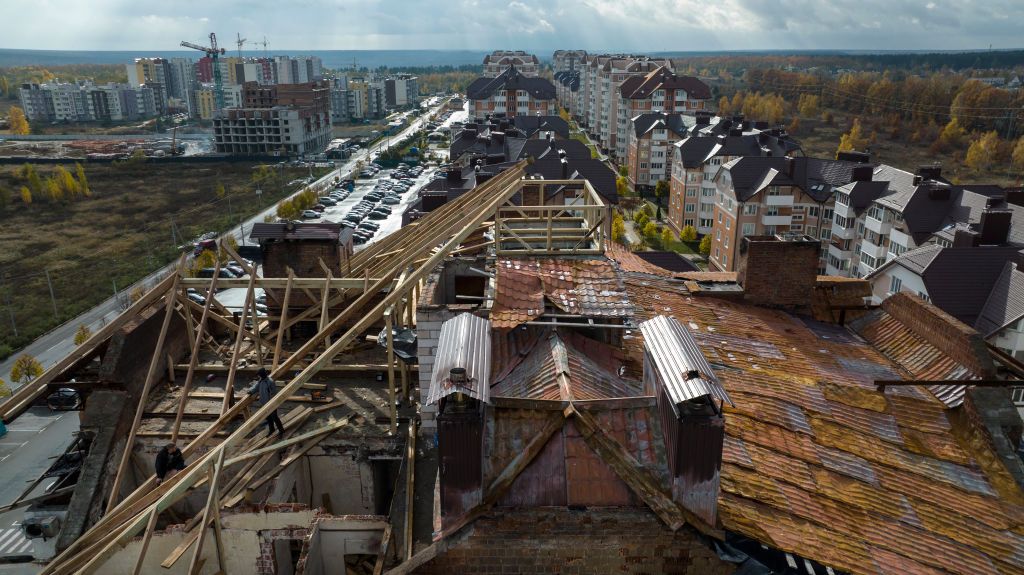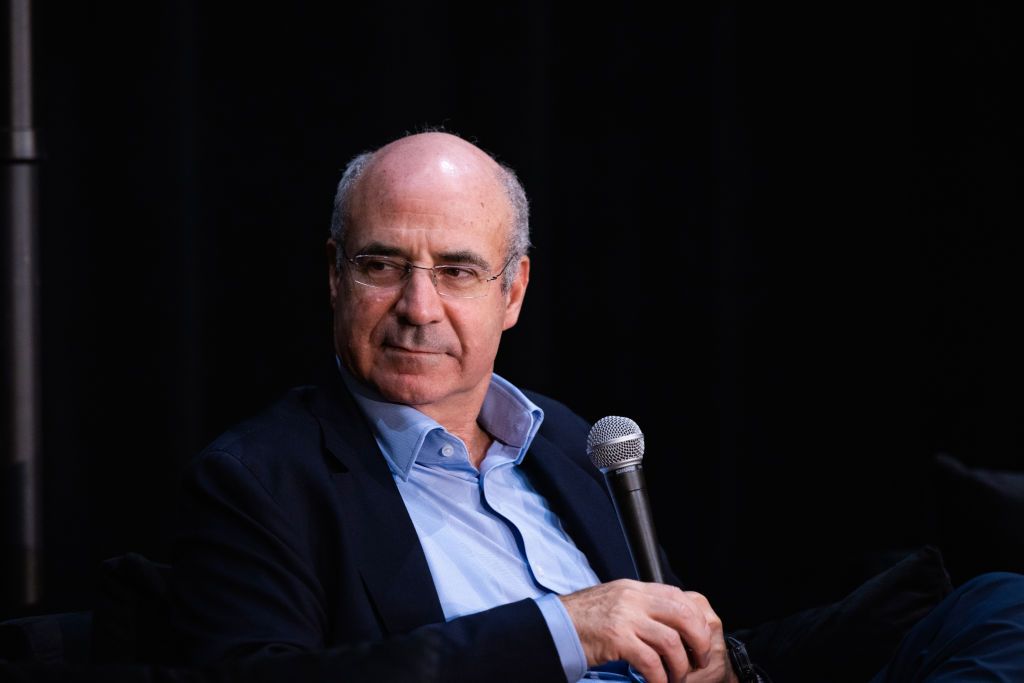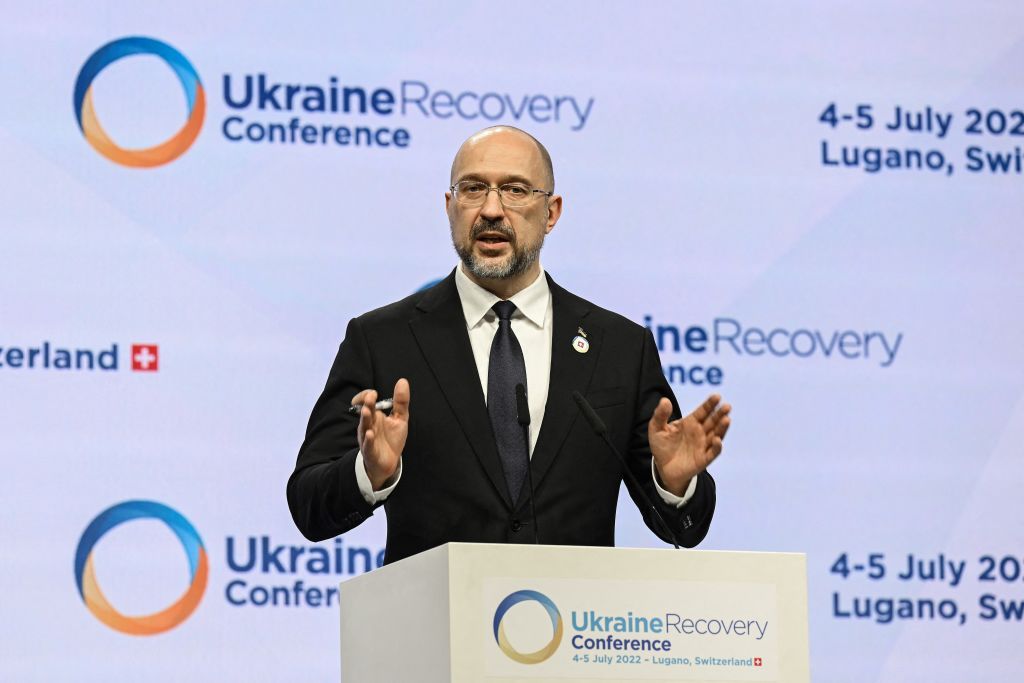STOCKHOLM – As Ukraine’s counteroffensive gets underway, Western countries must help liberate all Ukrainians living under Russian occupation. But Western assistance must not end once Russia is defeated. Ukraine’s supporters must also help its postwar recovery.
The Ukraine Recovery Conference in London on June 21-22 is an opportunity to catalyze the reconstruction process. The annual gathering, which has been organized by Ukraine’s international allies since 2017, will bring together representatives from Ukraine and other countries, as well as international organizations and NGOs, each with their own proposals for organizing the country’s recovery. The hope is that the conference will integrate these initiatives into a cohesive strategy.
The World Bank, in collaboration with the Kyiv School of Economics and the Ukrainian Ministry for Communities, Territories, and Infrastructure Development, recently estimated the damage wrought by Russia’s war of aggression. The report puts the cost of Ukraine’s reconstruction at more than $411 billion, 2.6 times its actual GDP in 2022.
Over the past 16 months, the G7 has emerged as the driving force behind the West’s economic support for Ukraine. The group has appointed a triumvirate consisting of high-level representatives from the United States, the European Union, and Ukraine to coordinate the aid effort. The G7 has also established a multi-agency Donor Coordination Platform to oversee the postwar reconstruction.

But the West is bigger than the G7. As major donors, countries such as Poland, Sweden, Norway, and Switzerland deserve a seat at the decision-making table. Ukraine’s government must also have a prominent role within the new reconstruction body, and the country’s vibrant civil society should also be part of these discussions.
The London conference must clarify the new reconstruction body’s structure and mandate and promote the appointment of an accountable executive to spearhead the recovery effort. Moreover, to ensure transparency, the proposed agency must establish rigorous mechanisms for auditing expenditures. Private companies should also be engaged from the beginning, perhaps through a private-sector advisory council comprising Western and Ukrainian business leaders.
Given that Russia initiated this war, it must pay reparations to finance Ukraine’s recovery. This is consistent with previous wars of aggression, such as the 1990 Iraqi invasion of Kuwait, which resulted in Iraq paying $52 billion in reparations. Considering the sheer scale of the devastation caused by Russia’s indiscriminate violence, the reparations it owes would be significantly larger.
To this end, the United Nations General Assembly adopted a resolution in November holding Russia liable for the costs of Ukraine’s reconstruction. The resolution, backed by 94 of the UNGA’s 193 members, states that Russia must “bear the legal consequences of all of its internationally wrongful acts, including making reparation for the injury, including any damage, caused by such acts.” It also recommends the establishment of a multilateral institution to facilitate reparations, as well as the creation of an international register of damage. In line with this recommendation, the Kyiv School of Economics and Ukraine’s Ministry of Economic Development have already begun to collect claims.
To be sure, Russia will not agree to pay reparations as long as Vladimir Putin remains in power. But that should not deter Ukraine and its allies. On Jan. 1, 2022, the Central Bank of Russia held $316 billion in international currency reserves. These funds, frozen by G7 countries at the beginning of the war, must be seized and used to help pay for Ukraine’s reconstruction. These reserves are the indisputable property of the Russian state, which bears responsibility for the war crimes committed in Ukraine. They are also liquid, so transferring them to escrow accounts would require minimal legislative work.
Interestingly, it was not until the EU required its member states to disclose all the Russian currency reserves within their jurisdictions that Western countries began to acknowledge their possession of these funds. In May, the EU reported that it holds more than 200 billion euros ($215 billion) in Russian central-bank assets. Other G7 countries holding Russian currency reserves, including the U.S., Japan, and Canada, must follow suit and provide a full accounting of their holdings ahead of the London conference.
Following the Iraqi precedent, these Russian currency reserves must be transferred to an agreed central-bank escrow account. In the U.S., this could be achieved without new legislation through the 1977 International Emergency Economic Powers Act. Other Western countries should follow Canada’s example and enact new laws permitting the use of seized Russian assets to fund the reconstruction of Ukraine. At the same time, Western governments should develop a comprehensive plan for allocating and administering these funds.

Despite receiving significant military support from the West, Ukraine is still in need of short-term budget financing to curb high inflation, which surged to 27% as the government was forced to monetize the deficit. This year, the Ukrainian government has asked for $38 billion in budget support. The EU and the U.S. have already helped finance its budget deficit during the first four months of the year, resulting in lower inflation.
In June 2022, the EU granted Ukraine candidate status, outlining seven conditions for the country’s accession. These include securing the rule of law, safeguarding property rights, and protecting the integrity of the selection and vetting process for Constitutional Court judges. Meeting these conditions before the London conference would enable the EU to initiate accession negotiations, which are expected to conclude within three years.
To kickstart Ukraine’s economic recovery, the EU could provide the country with immediate access to the single market. But the country’s recovery must be driven by the private sector, which means that the Ukrainian government must pursue privatization and deregulation to reduce the role of the state. By protecting property rights and fighting corruption, Ukraine could help fund its reconstruction and achieve sustainable growth.
Editor’s Note: Copyright, Project Syndicate. The following article was published by Project Syndicate on June 13, 2023, and has been republished by the Kyiv Independent with permission. The opinions expressed in the op-ed section are those of the authors and do not purport to reflect the views of the Kyiv Independent.














